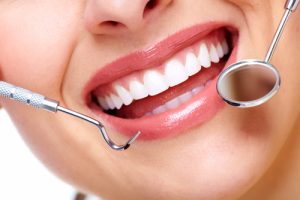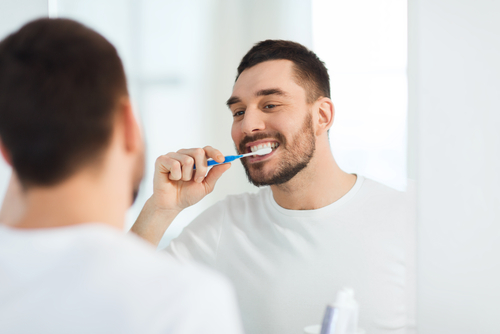Properly Care For Your Dental Crown
Dental crownsare a great solution to protect damaged or weakened teeth while restoring your smile’s appearance. But, just like natural teeth, dental crowns need care to stay in good shape. At Cohen Dentistry, our experienced Harris, NY dentist, Dr. Ari Cohen will explain why caring for your crown is important, how to do it correctly, and what steps you can take to protect both temporary and permanent crowns.
If you’re in Harris, Monticello, Liberty, Kiamesha Lake, South Fallsburg or the surrounding areas, contact us today by calling (845) 794-4545 to learn more about how to care for your dental crown.
Why Dental Crown Care Matters

Here are some key reasons why taking care of your dental crown matters:
- Prevent Damage: Crowns can crack or chip if exposed to excessive pressure or hard foods.
- Protect the Underlying Tooth: The tooth under the crown is still vulnerable to decay and gum disease if not properly cared for.
- Prolong Your Crown’s Lifespan: With proper maintenance, dental crowns can last over a decade.
How to Care for Your Dental Crown
Caring for a dental crown is a lot like caring for your natural teeth. Here are some essential tips:
Maintain Good Oral Hygiene
Continue brushing your teeth at least twice a day and flossing daily. Use a soft-bristled toothbrush and non-abrasive toothpaste to avoid scratching the crown. Flossing around your crown is especially important because food particles can get trapped at the base, which can lead to decay.
Be Mindful of What You Eat
Avoid hard or sticky foods that can crack or dislodge your crown. Chewing ice, hard candies, or sticky gum can put undue stress on the crown. Stick to a balanced diet that won’t put unnecessary pressure on your crown.
Use a Mouthguard If Necessary
If you grind your teeth at night (a condition known as bruxism), wearing a nightguard can prevent damage to your crown. Grinding can wear down or even crack a dental crown.
Schedule Regular Checkups
Visit your Harris dentist regularly to ensure your crown is in good condition. Routine dental checkupscan help detect any early signs of problems with the crown or the tooth underneath it. Dr. Cohen encourages patients to come in for regular cleaningsand exams to protect their dental work.
Caring for a Temporary Dental Crown

- Be Gentle: Avoid chewing directly on the side with the temporary crown, especially when eating hard or sticky foods.
- Watch Your Flossing Technique: When flossing around the temporary crown, slide the floss out rather than lifting it up to avoid pulling the crown loose.
- Avoid Certain Foods: Sticky foods like caramel and hard foods like nuts should be avoided until your permanent crown is placed.
Common Dental Crown Problems and How to Avoid Them
While dental crowns are built to last, they can sometimes face issues. Here are common problems and how to prevent them:
- Sensitivity: After a crown placement, some people experience sensitivity to hot or cold temperatures. If this happens, use a toothpaste for sensitive teeth, and avoid extreme temperatures in food or drink.
- Crown Loosening: Crowns can sometimes become loose over time. To avoid this, avoid biting down on hard objects, and be sure to follow proper oral care routines.
- Discoloration: While the crown itself won’t stain, the natural teeth around it can. Keeping up with oral hygiene and avoiding stain-causing foods like coffee and wine can help maintain a consistent tooth color.
Frequently Asked Questions
Absolutely! Brush and floss your dental crowns just like you would with natural teeth. It’s essential to clean the area where the crown meets the gumline to prevent plaque buildup and gum disease.
If you notice that your dental crown feels loose or dislodged, contact your dentist immediately. They’ll examine the crown and determine the best course of action, which may involve re-cementing the crown or replacing it with a new crown, if necessary.
While dental crowns themselves can’t develop cavities, the natural tooth and structure beneath the crown are still susceptible to decay. It’s best to maintain good oral hygiene and attend regular dental check-ups to detect and treat any signs of decay early.
Protect Your Smile for the Long Term
Proper dental crown care is essential for keeping your smile healthy and functional. By following these simple steps, you can extend the life of your crown and avoid complications. If you have any concerns about your dental crown or need to schedule a checkup, contact Dr. Ari Cohen by calling (845) 794-4545. Our team is ready to provide you with quality care, ensuring that your crown – and your entire smile – stays in top shape for years to come. Patients from Harris, Monticello, Liberty, Kiamesha Lake, South Fallsburg and the surrounding areas are welcome to reach out for consultations and ongoing dental support.
